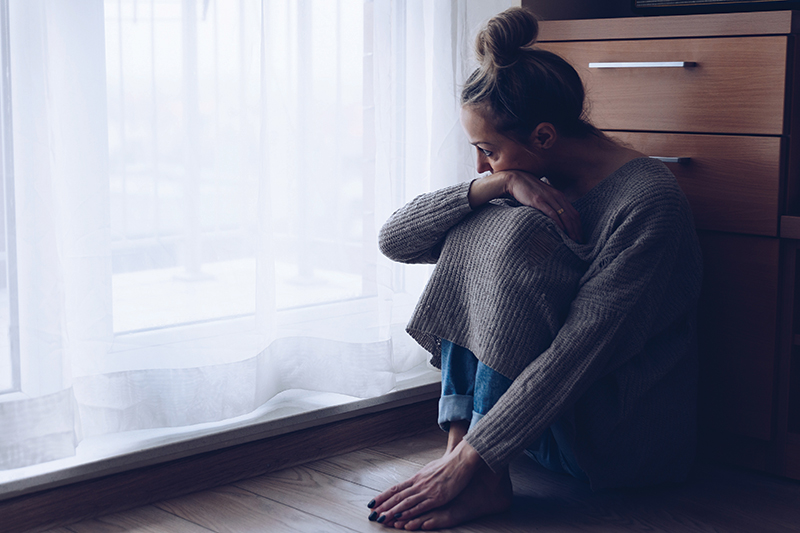I am an avid reader. I read everything about wellness: taking care of ourselves, doing all we can to improve our lives, and learning what things are the biggest threat to our health and wellness. The topic that is coming up in just about everything I read these days is loneliness.
We may think that loneliness is only an issue for those who live alone, have no local families, and have only a few or no friends; however, that is not the case. Loneliness is everywhere, and several specific factors have significantly contributed to this issue over the past several years. It’s an important issue and has even been called the “silent killer” in society. Some of the statistics Jeff Krasno mentions in Commune Podcast, episode 461, are as follows: 52% of adults surveyed reported feeling lonely much of the time; 47% reported feeling their relationships are not meaningful; 58% reported that “no one really knows them”; 57% (single or not) reported they eat all their meals alone.
The Effect of Loneliness on Our Health
We seem to understand that poor diet, lack of exercise, and bad habits such as smoking negatively affect our health. What we don’t seem to recognize is that loneliness is as significant a danger as the other things on that list. Research by the Roots of Loneliness Project shows that loneliness increases our risk of death at the same rate as smoking 15 cigarettes a day! Social isolation is a serious problem in our society; these past few years made that even worse.
Over the last several decades, things like gated communities, social media, email, and texting have decreased our actual connection with others. We have also seen a huge decline in those belonging to any type of church community. Then, when the pandemic hit, decisions were made that caused more isolation, disconnection, and fear. Digital learning was ineffective in supporting child development and certainly didn’t help children learn social skills. Working from home seemed like a great idea initially, but soon, many realized they missed the connection with co-workers and often felt lonelier than they had previously. I recognize that many still enjoy the option to work from home, but it’s important to note the negative effects it has created for many workers.
In my work as a therapist, I hear from many clients how much they missed gathering with family, friends, church members, book clubs, and so on. They reported eating more (often unhealthy comfort food), drinking alcohol more frequently, moving less, and dreading interactions with others out of fear that others were “contagious” and, therefore, dangerous. Our medical societies and our government, including the FDA and CDC, used fear as a motivator, and it backfired quickly. Suicide rates were (and continue to be) on the rise, depression and anxiety are rampant, and the common denominator is often loneliness…typically in reaction to fear.
Connection Is Key
In her book Growing Young, Marta Zaraska notes the research that shows that connection with others is key to our longevity. There are too many examples to mention here, but one thing we know (and have known) for certain is that lonely people are much more susceptible to illness and even death, as loneliness weakens our immune system. Zaraska notes, “Loneliness appears to push up the risk of cardiovascular disease, stroke, and even urinary incontinence. And, of course, it can also shorten life rather dramatically by suicide.”
We are created with a need for connection with others. Evolutionarily, we are tribal people. Being separated from the tribe meant death. Working together was essential for survival; alone, we would die. We may now be able to supply ourselves with food and shelter, but even the best food and shelter can’t counter the effects of loneliness.
So, what’s the answer? Connection! Start small if you need to. If going into the office is an option, do it every once in a while. If you’re going for a walk, invite a neighbor or friend. Host or attend a game night, a book club, or a movie night. Volunteer—a double benefit, as we also know that helping others improves our health. Exercise with others (another activity with double benefits).
I will be offering a Women’s Wellness Group in the fall through The Sacred Self, LLC. Check my website for more details. Consider seeing a therapist if you are suffering from loneliness. The therapeutic relationship itself is the most significant aspect of successful therapy! Most importantly, please remember that you are not alone. There are always people who will listen, walk, laugh, and just be with you. Don’t stop trying to find them. If you need more ideas and help, reach out! I will do my best to assist you in the process.
Charleen K. Miele, LPC, is a Licensed Professional Counselor who started her journey as a teacher, church music director, and fitness instructor. Charleen works with clients both in person and via telehealth and has recently added Trauma Informed Breathwork to her work. She offers her clients the opportunity to experience IFS and/or breathwork through in-person and online sessions and is currently offering group breathwork sessions online and will be hosting workshops and group sessions in person in the new year. Life coaching and spiritual life coaching, including breathwork and IFS work, are also available both as individual sessions and as packages of two, four, or six sessions. Charleen will soon be offering self-paced online courses as well as interactive groups that will meet for a series of weeks and will include lectures, discussions, journaling, and experiential somatic work through breathing and movement.
Visit: https://www.thesacredselfllc.com/. Contact Charleen at: thesacredselfllc@gmail.com or call 860.614.8382. Located at 171 Market Square #102, Newington, CT.
